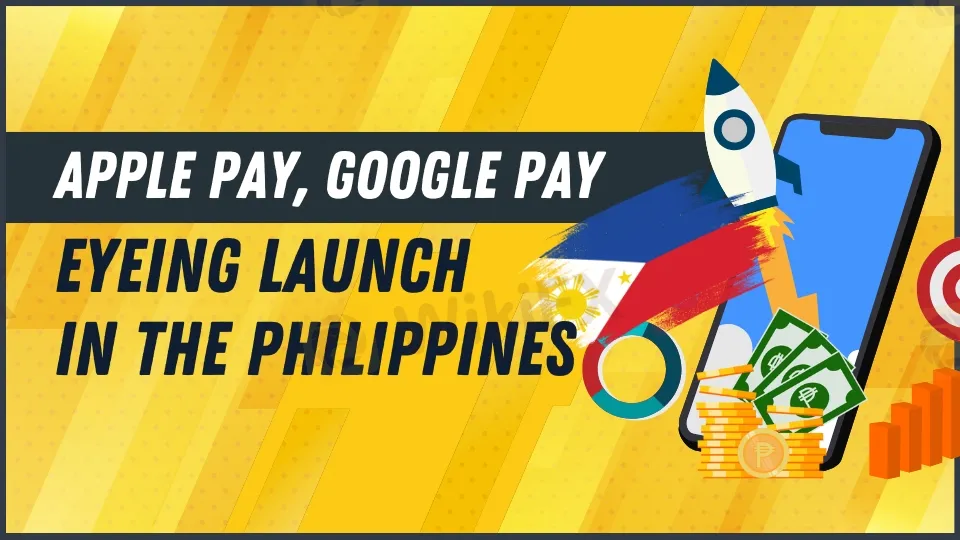PU Prime Launches “The Grind” to Empower Traders
Discover PU Prime’s new campaign, “The Grind,” and learn how trading discipline builds long-term success. Watch and start your trading journey today!
简体中文
繁體中文
English
Pусский
日本語
ภาษาไทย
Tiếng Việt
Bahasa Indonesia
Español
हिन्दी
Filippiiniläinen
Français
Deutsch
Português
Türkçe
한국어
العربية
Abstract:Apple Pay and Google Pay plan to enter the Philippine market. To do so, they must first register with the BSP as operators of payment systems.

Apple Pay and Google Pay are exploring the possibility of launching in the Philippines but must first secure registration with the Bangko Sentral ng Pilipinas (BSP) as operators of payment systems (OPS), according to a top official.
BSP Deputy Governor Mamerto Tangonan shared that meetings have been held between the central bank and representatives from both Apple Pay and Google Pay, which are still not available in the Philippines. “They‘re exploring, and we’ve had discussions about their activities. Its clear that when you touch the payment system, you are an operator of payment systems,” he explained in an interview with reporters.
As per the BSPs regulations, any entity providing clearing or settlement services in a payment system must register with the bank. This includes defining, controlling, or maintaining the operational framework for such systems. This requirement is outlined in the National Payments Systems Act (NPSA).

To date, Tangonan noted that Apple Pay and Google Pay have not yet filed applications for registration with the BSP. Once registered, the services can be made available to the public, but the process may take a month.
Both Apple Pay and Google Pay allow users to make financial transactions through near-field communication (NFC) devices, enabling payments via smartphones or smartwatches linked to debit or credit cards and e-money accounts.
Tangonan clarified, “We don‘t license them. We just require registration. Once they’re registered, they can provide the service.” However, he noted that it was unclear why the service providers had not yet filed their applications. “Maybe they are already in the process,” he speculated.
The BSP also reported that digital payments accounted for 52.8% of retail payment transactions in 2023, surpassing their 50% target under the Digital Payments Transformation Roadmap 2018-2023, up from 42.1% in 2022.
Final Thoughts
The entry of Apple Pay and Google Pay into the Philippine market will likely provide a significant boost to digital payment adoption in the country. However, their success depends on completing the necessary regulatory requirements with the BSP. The next few months could be pivotal in determining how soon Filipino consumers will gain access to these global payment giants.

Disclaimer:
The views in this article only represent the author's personal views, and do not constitute investment advice on this platform. This platform does not guarantee the accuracy, completeness and timeliness of the information in the article, and will not be liable for any loss caused by the use of or reliance on the information in the article.

Discover PU Prime’s new campaign, “The Grind,” and learn how trading discipline builds long-term success. Watch and start your trading journey today!

IG boosts FCA compliance by integrating Adclear’s AI tools. Learn how automation accelerates marketing approvals and ensures regulatory accuracy.

The Indian Finance Minister Nirmala Sitharaman, while announcing the Union Budget 2026-27, proposed a sharp rise in the Securities Transaction Tax (STT) on Futures and Options as part of the government’s strategy to soothe the country’s overheated derivatives market. The move comes on the backdrop of regulators’ concerns over excessive speculation in F&O allowing retail traders to enter the market and lose capital. Whether the government will be able to curb excessive speculation in F&O through this move remains to be seen. The stock indices, however, were hit hard, with the BSE Sensex falling by 1500 points amid widespread selling on the STT hike. Let’s examine the potential impact of this hike on Indian F&O traders.

Join forex expert Tom as he shares his journey, trading wisdom, and thoughts on AI and the future of forex in WikiFX’s inspiring “Inside the Elite” interview.
